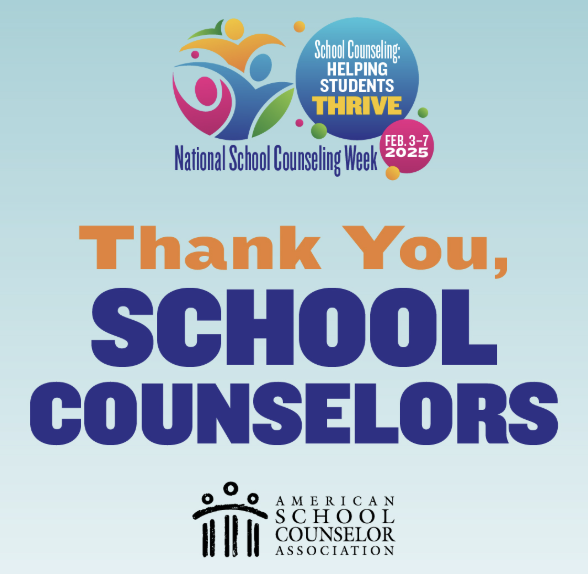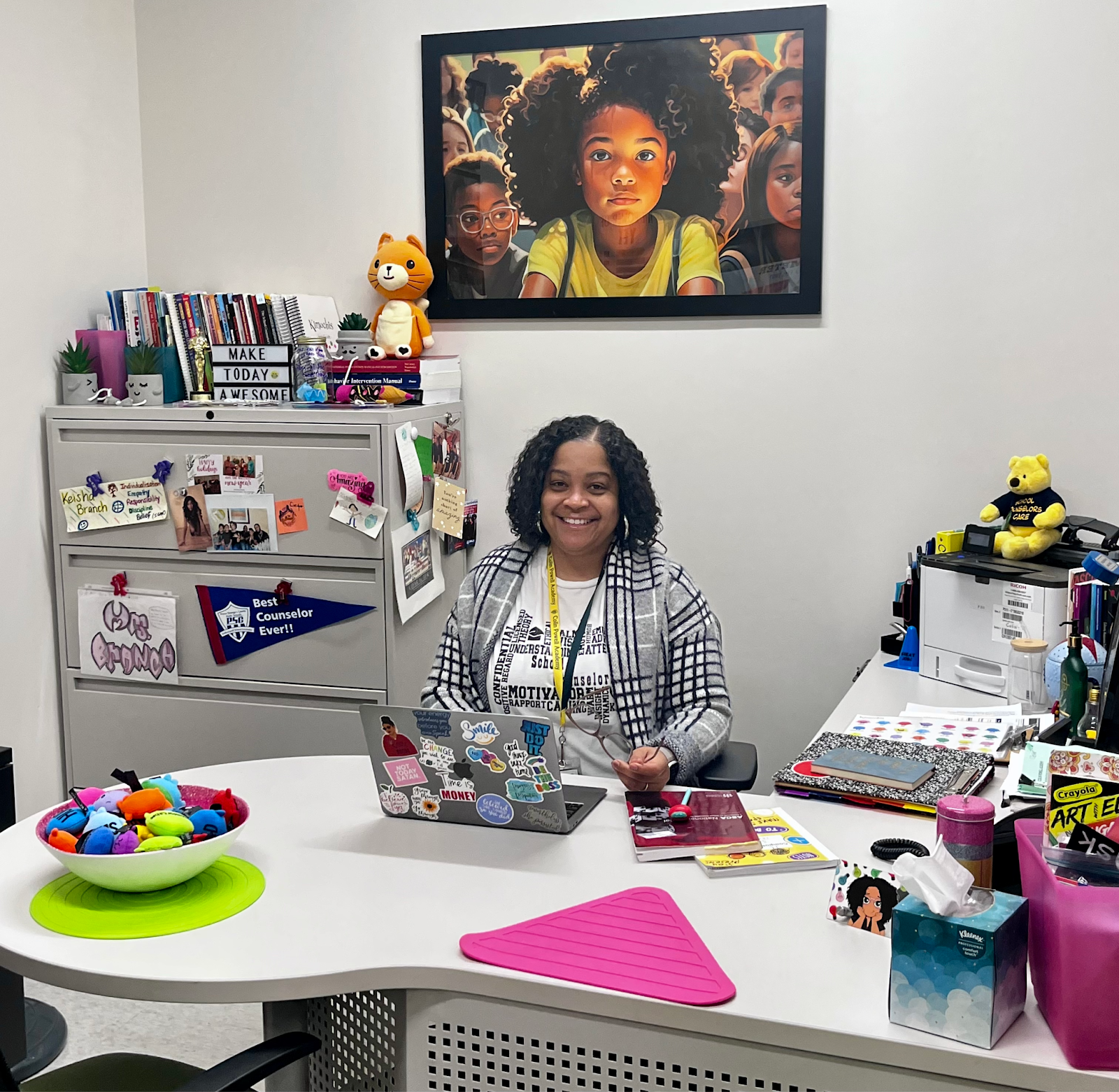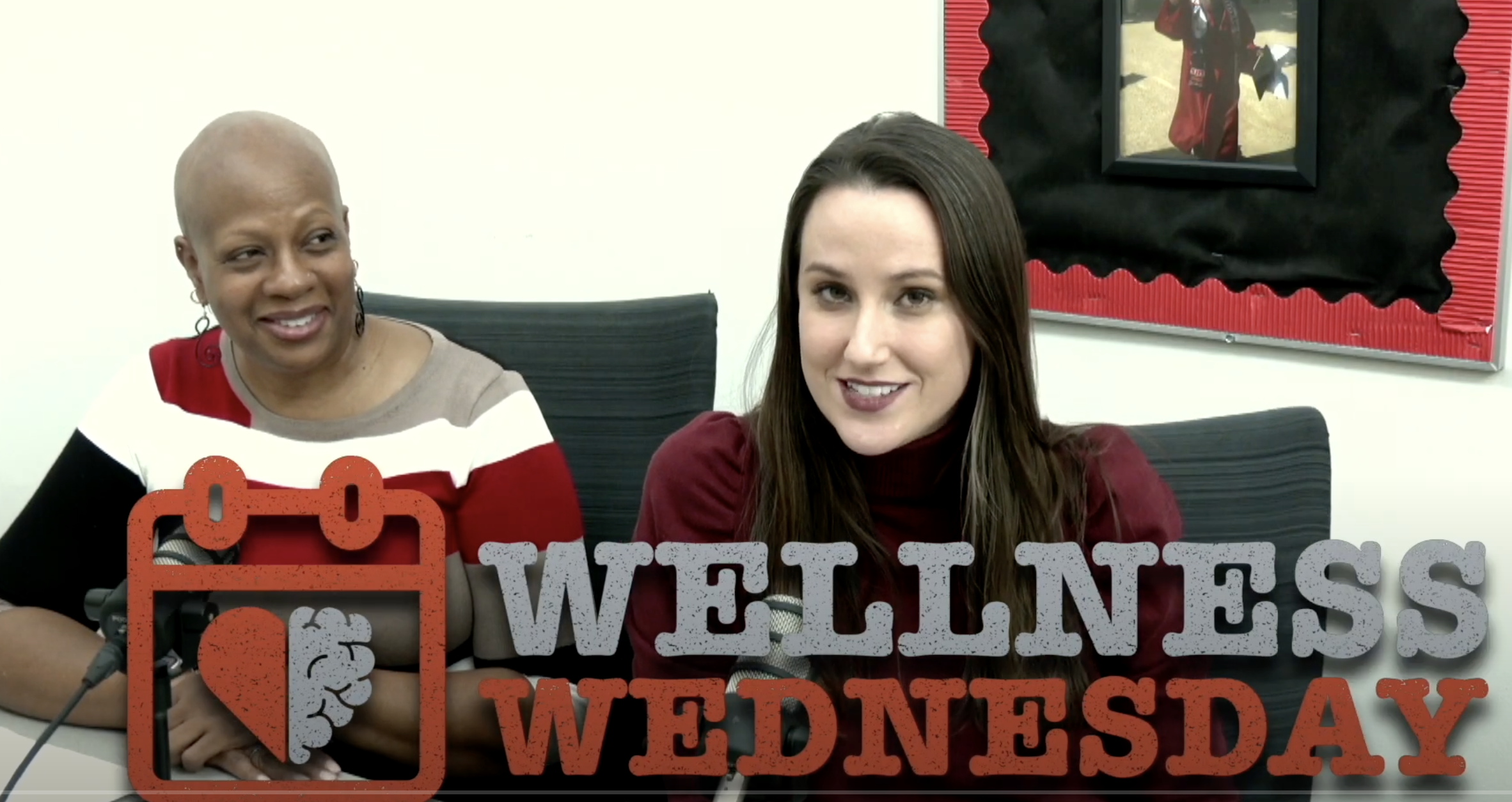Helping Students Thrive: Q&A with PGCPS Counselors

National School Counseling Week is celebrated from February 3–7. Hear from two PGCPS school counselors on how they support students and families and what they find most rewarding in their jobs!
Cameron Agerston, Professional School Counselor at Frederick Douglass High School
Q: What part of your job do you find most rewarding, and how do you think it impacts students' overall well-being?
A: The most rewarding aspect of my role is witnessing each student grow—not just academically but as a whole person. When I see a student who once struggled with self-doubt begin to participate confidently in class or take on challenges they once thought insurmountable, I know that the support provided has helped nurture their overall well-being. This transformation doesn’t just improve their academic performance; it empowers them with the resilience and self-awareness that benefits every facet of their lives.
Q: Can you share a memorable moment when you made a significant difference in a student's life, whether big or small?
A: Annually, the P-TECH program celebrates its graduates at an end-of-the-year ceremony, during which students share their reflections on their journey. In these moments, students share their honest truth, often tearfully, affirming the role of the school counselor in helping students achieve their goals.
Q: What advice would you give to students who are struggling to balance their academic pressures with their personal well-being?
For students struggling to balance academic pressures with personal well-being, I offer this advice: prioritize yourself. It’s important to recognize that self-care isn’t a luxury—it’s essential. Carve out time for activities that rejuvenate you, whether that’s a hobby, physical exercise, or simply quiet reflection. Don’t hesitate to seek support from teachers, counselors, or peers when you’re feeling overwhelmed. Remember, asking for help is a sign of strength, not weakness. When you take care of your well-being, you create a strong foundation that supports both your personal growth and academic success.
Keisha Branch, Professional School Counselor at Colin Powell K-8 Academy

Q: What part of your job do you find most rewarding, and how do you think it impacts students' overall well-being?
A: The most rewarding part of my job is seeing students gain confidence, use their voice, develop a sense of agency, and show resilience in the face of challenges. Watching a student go from feeling unsure or discouraged to advocating for themselves and making positive choices is incredibly fulfilling.
When students feel empowered, they engage more in their learning, build stronger relationships, and develop the skills needed to navigate challenges both in and out of the classroom. By fostering their confidence and self-awareness, I help create a foundation for their long-term success and overall well-being. Seeing that growth firsthand is what makes this work so meaningful.
Q: Can you share a memorable moment when you made a significant difference in a student's life, whether big or small?
A: As one of the elementary school counselors at Colin Powell Academy, I primarily support our youngest learners, but as a team, we are committed to serving all K-8 students. A particularly memorable moment came when I encountered two sixth-grade students skipping class—our very first interaction. Rather than viewing the situation as a disciplinary matter, I saw it as an opportunity to build a connection.
We had an open conversation about their reasons for skipping, the influence of peer pressure, identifying trusted adults, and finding healthier ways to seek support. We also discussed problem-solving strategies and how to make better choices moving forward. The students were surprised that the conversation wasn’t about consequences but about understanding and growth.
Later, one of the girls stopped me in the hallway and gave me the biggest hug. She proudly shared that her grades had improved and that she hadn’t skipped class since. That moment reinforced my belief in Connection Before Correction—when students feel heard and supported, they’re more likely to make positive changes. It was a small moment, but one that truly warmed my heart.
Q: What advice would you give to students who are struggling to balance their academic pressures with their personal well-being?
A: My advice to students struggling to balance academic pressures with personal well-being is to utilize your resources and take a holistic approach to self-care. School can be overwhelming at times, but you don’t have to navigate it alone. Seek support from trusted adults—counselors, teachers, family members—and don’t be afraid to ask for help when you need it.
Prioritizing your well-being is just as important as your academic success. This means finding healthy ways to manage stress, such as getting enough rest, staying active, taking breaks, and engaging in activities that bring you joy. Organization and time management can also make a big difference—using planners, setting small goals, and breaking tasks into manageable steps can help prevent burnout.
Most importantly, remember that success is not just about grades, but about growth and balance. Give yourself grace, celebrate your progress, and know that setbacks are part of the learning process. You are capable, and support is always available when you need it.



